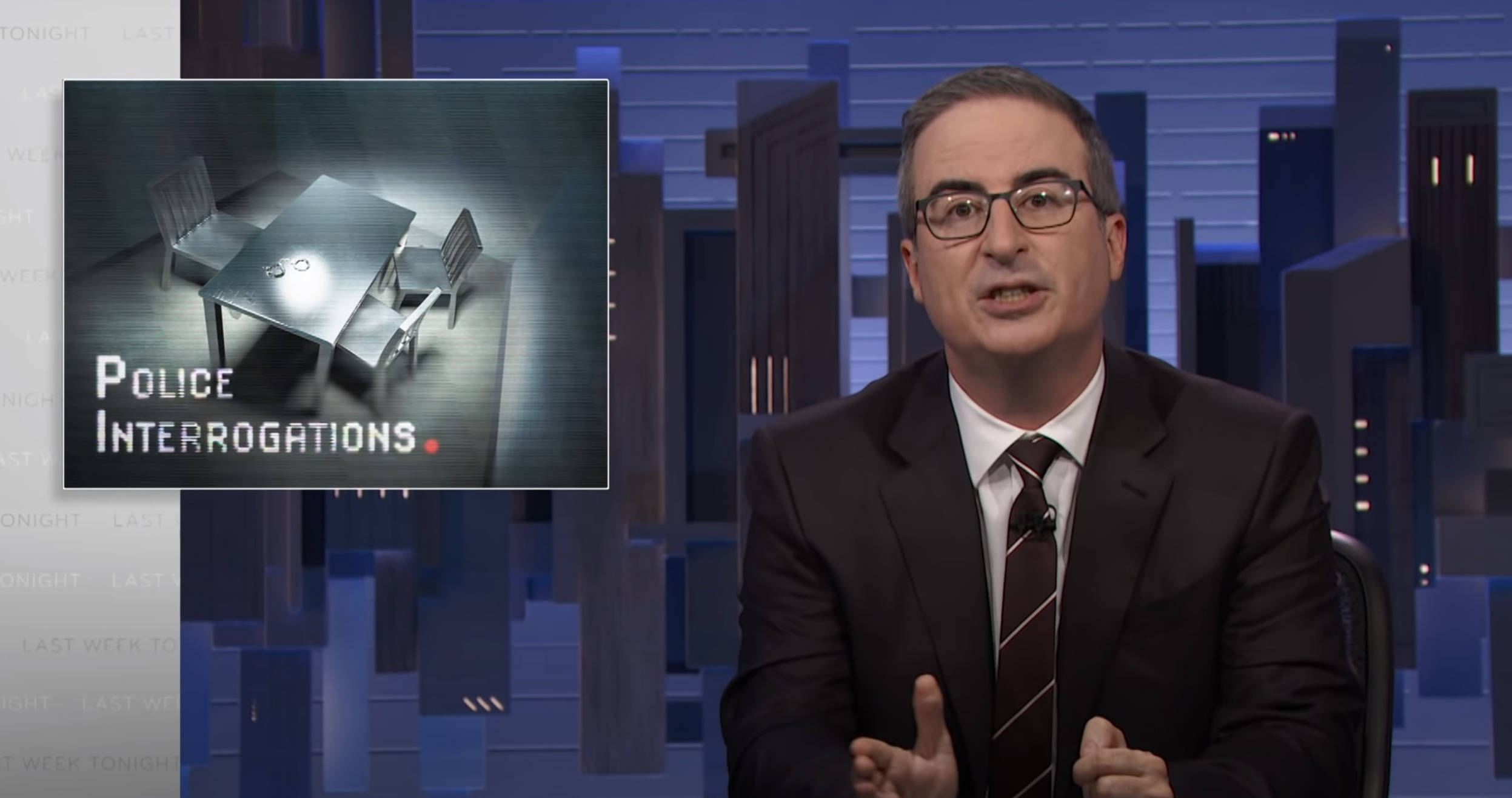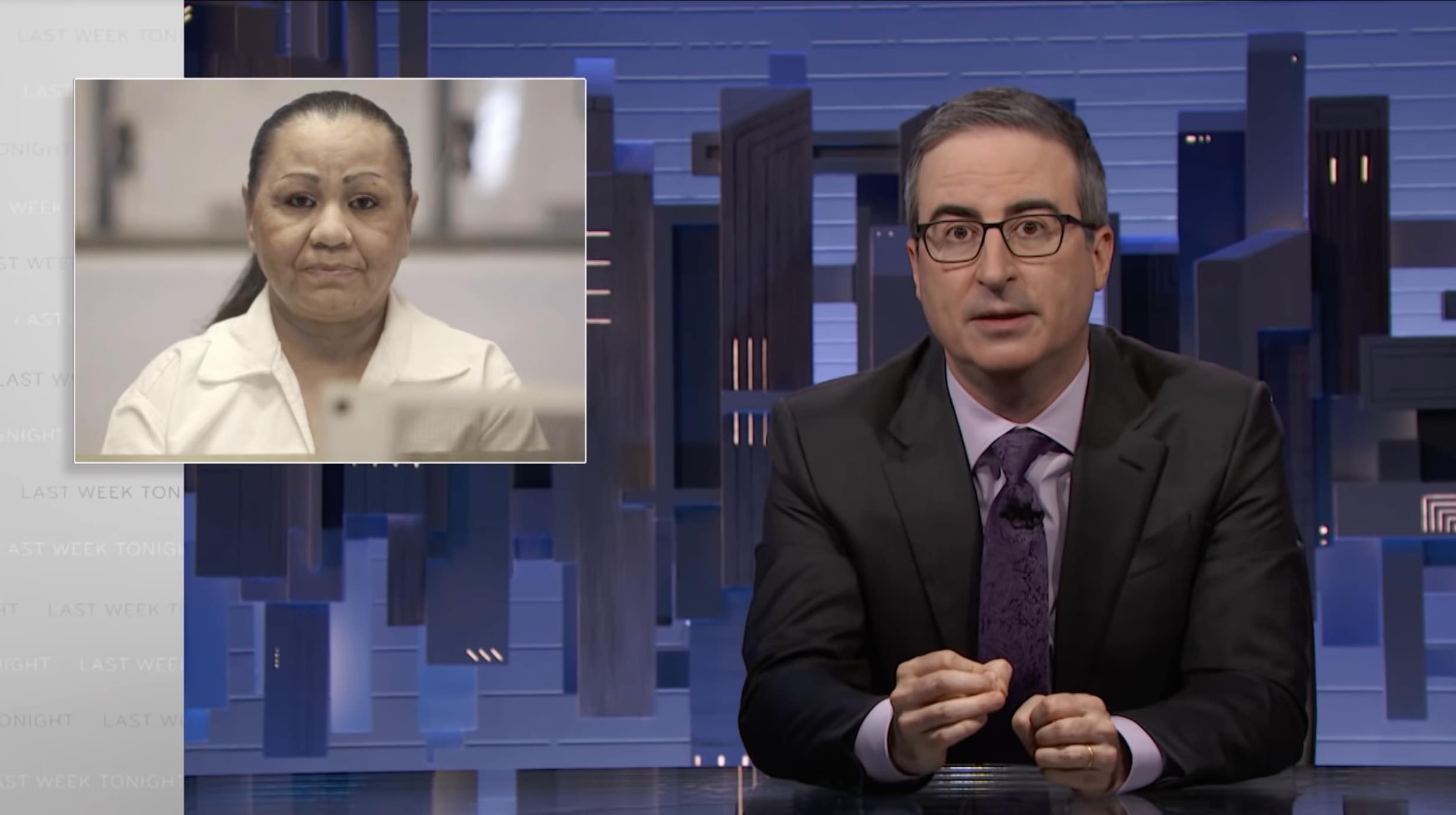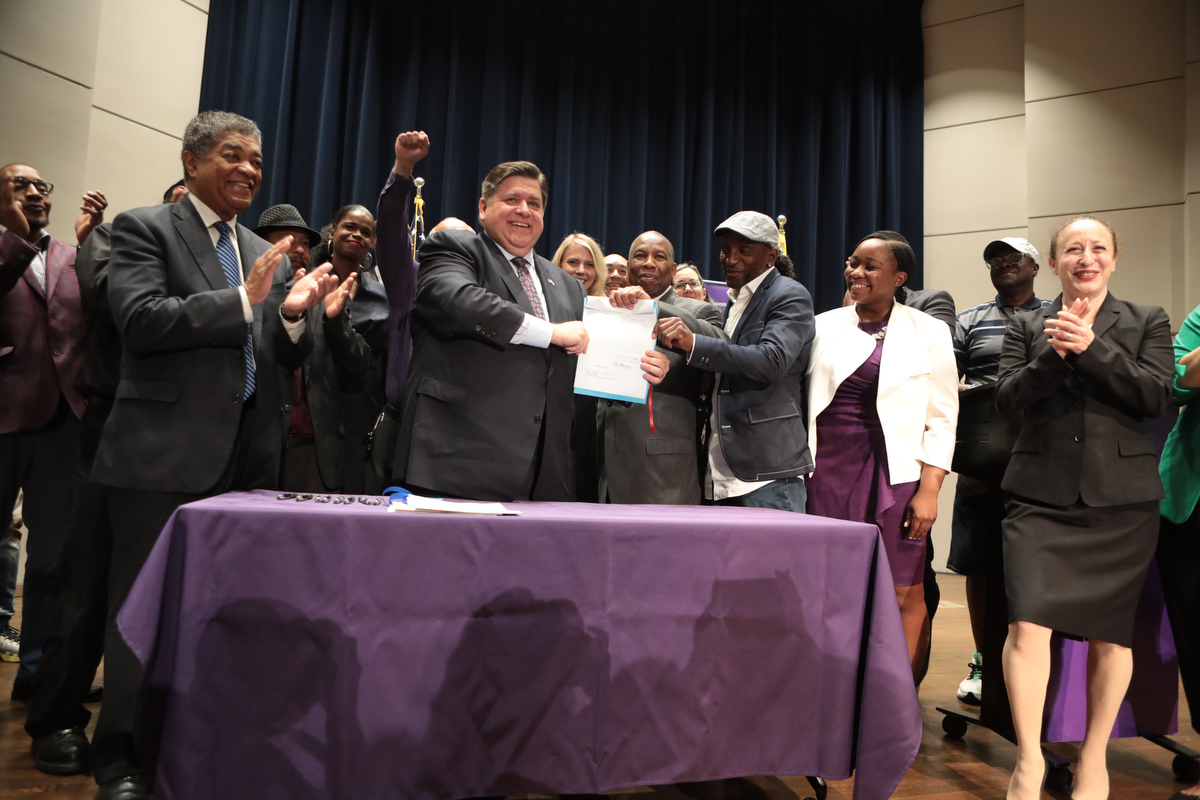Police Interrogations: Last Week Tonight with John Oliver (HBO)
John Oliver: “Maddened” That It’s Legal for Police to Lie to Suspects During Interrogations
In nearly every state, it’s legal for police to use deceptive tactics during interrogation.
04.18.22 By Rebecca Brown
Yesterday on HBO’s “Last Week Tonight”, host John Oliver took aim at the false confession phenomenon, highlighting various risk factors, from coercive interrogation methods to lack of judicial oversight. Since 1989, over 3,000 innocent people have been exonerated in the U.S, and at least 10% falsely confessed to crimes they did not commit, including Innocence Project client Christopher Tapp, who was featured on the show.
“Allowing the police to lie to suspects is crazy, most countries do not allow it and for good reason, it is far too powerful a tool,” said Mr. Oliver. In nearly every state, it’s legal for police to use deceptive tactics during interrogation.
In fact, Oregon, Illinois, and Utah just became the first states in the country to ban police deception during the interrogation of juvenile suspects, who are especially vulnerable to false confessing.
“The overwhelming pressure of a police interrogation coupled with their ability to invent evidence can actually make people question their own memories — that happened with Christopher Tapp who served 20 years in prison for a murder he did not commit and was heavily manipulated during his interrogation,” said Mr. Oliver about Mr. Tapp who was just 20-years old at the time of the interrogation.
The Innocence Project, in coalition with exonerated people, community organizers, and lawmakers, are working on a series of reforms, described below, to prevent false confessions that lead to wrongful convictions, but countless people are still fighting for their freedom after falsely confessing to crimes they did not commit.
“There are still many incarcerated people fighting convictions that have every hallmark of a false confession like Brendan Dassey …. and Melissa Lucio whose incredible manipulated interrogation we featured in our wrongful convictions piece and is set to be executed in just 10 days,” Mr. Oliver said.
In 2008, Innocence Project client Melissa Lucio was sentenced to death and now faces execution on April 27 in Texas largely based on statements she was coerced into making in a marathon interrogation the night her 2-year old daughter, Mariah, died following a tragic fall. Police jumped to judgment – erroneously concluding that Mariah’s death was a murder and just two hours after her daughter’s death, Ms. Lucio was brought in for questioning. Officers aggressively interrogated Ms. Lucio, who was pregnant and in shock from the loss of her child, for over five hours. After asserting her innocence more than 100 times, Ms. Lucio finally acquiesced and told interrogators, “I guess I did it” and, reluctantly, agreed to take responsibility for various injuries on Mariah.
Lacking solid physical evidence, Cameron County District Attorney Armando Villalobos presented Ms. Lucio’s conciliatory statement to the jury as a “confession” to homicide and sought the death penalty.
Similar police tactics led to the wrongful convictions of Texan Chris Ochoa, who was threatened with the death penalty and then falsely confessed to a murder he did not commit, the infamous Exonerated Five (Central Park jogger case), and untold others. In homicide exonerations proven through DNA testing, a false confession is the most common contributing factor.



Leave a Reply
Thank you for visiting us. You can learn more about how we consider cases here. Please avoid sharing any personal information in the comments below and join us in making this a hate-speech free and safe space for everyone.